BJP Minister Ramesh Tawadkar’s statement to open a ‘centre’ that treats gays, shows that people still believe homosexuality is an illness that can be cured...
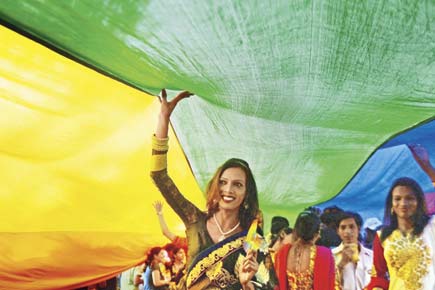
The last day of January saw thousands gather with rainbow flags at Grant Road’s August Kranti Maidan. Many Lesbian, Gay, Bisexual, Transgender and Queer (LGBTQ) people as well as supporters gathered as they all marched together for the rights of people from the community, at the Mumbai Pride.
ADVERTISEMENT
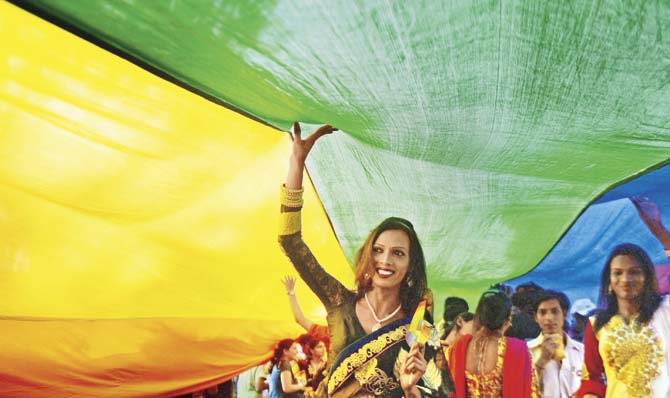
LGBTQ community members carry the rainbow flag through the streets of Mumbai for the Queer Azaadi March. Pic/PTI
While there was joy in the air, there was a tinge of sadness too. A few members of the community as well as some of their parents, shared their stories of the troubles they faced when they first came out about their sexuality.
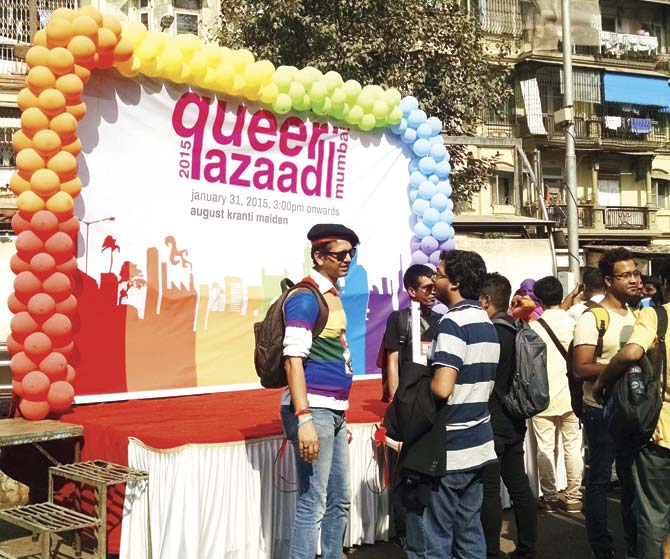
The Queer Azaadi March at August Kranti Maidan
Rituals and counselling
Sujeet Tikku, 27, a dance tutor from Malad came out about his sexuality five years ago. He says, “My parents were shocked, as were my siblings. I have two sisters. My parents spoke to our family pandit who suggested that they do a havan at a temple to make me ‘normal’ again.
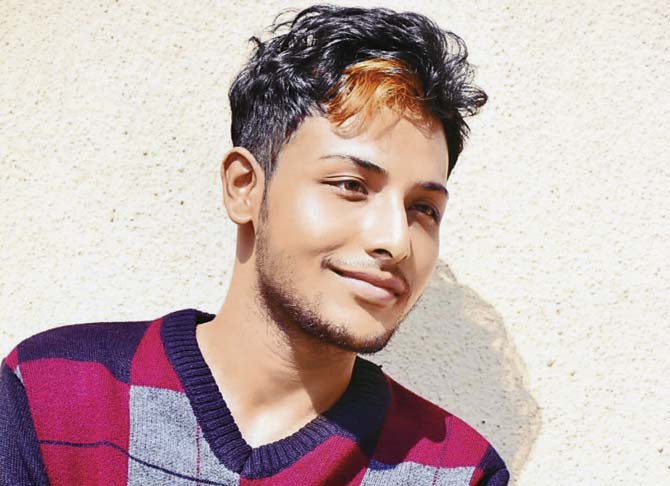
Pritam Chaudhary
I was made to sit for it and beaten with a broom. When it did not work, my parents took me to a ‘doctor’ in Vashi who gave me electric shocks and some medicines that would increase the testosterone in my body. When all failed, my parents disowned me.”

With posters, flags and balloons, thousands of people made a statement at the Pride parade
Tikku has not spoken to his parents for more than three years. His sisters and their husbands have accepted him and they visit him often. “For siblings to accept is much easier as they are more open to modern ideas. The societal pressures make it difficult for parents to accept their gay or lesbian children.
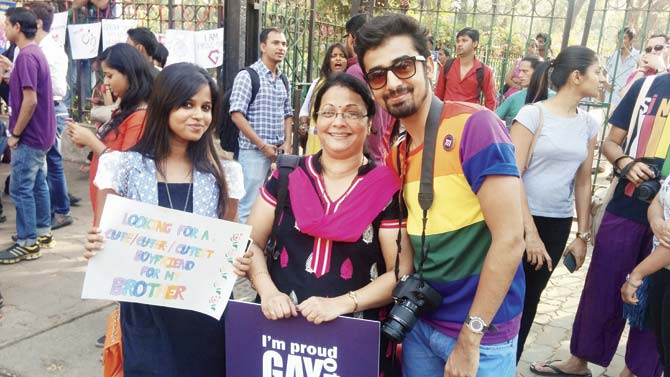
Nakshatra Bagwe (r) with his mother Swati (c) and sister Samiksha Mirashi
I am suffering due to these rules of society,” says Tikku. Media professional Leena D’Souza, 25 who stays in Bandra says her parents took her for extensive counselling and made her speak to a number of priests in the hope that she would become ‘normal’ again.
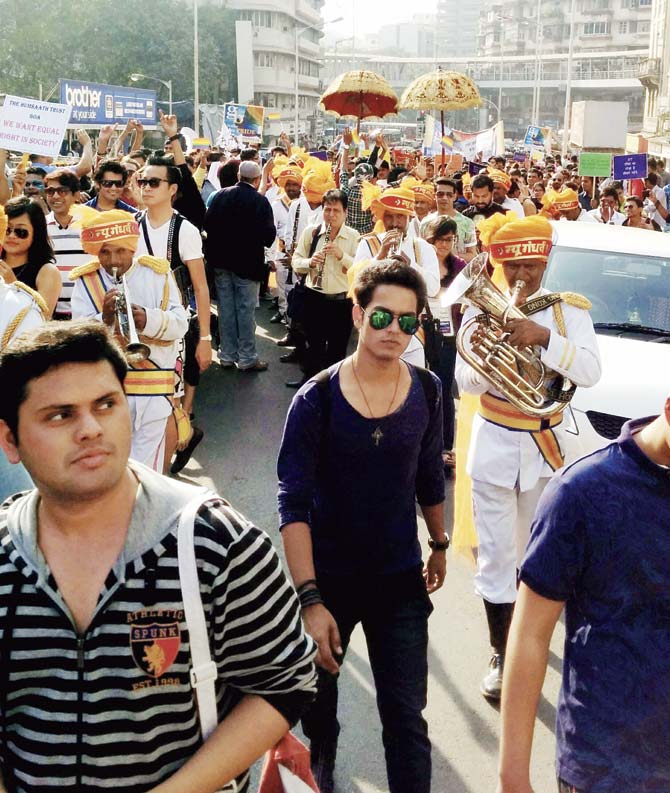
With a band playing and thousands marching, many Mumbaikars were on the streets supporting the LGBT community
She says, “My parents couldn’t believe that I did not like boys and liked girls. Most of the priests I spoke to, told me how what I was doing was a grave sin. But the reality was that I did not choose to like girls, it is just the way I am. I was depressed for a very long time. But then I realised that if being myself was a sin, then God did not understand me.”
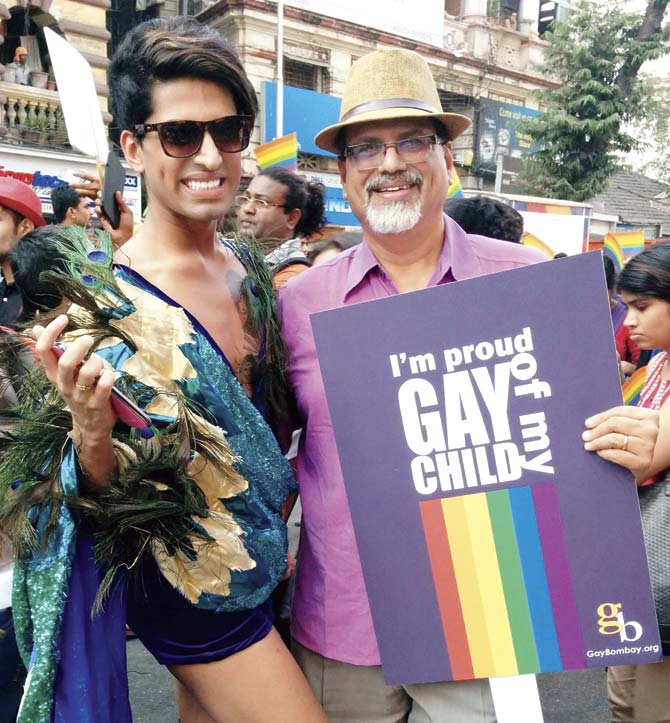
Sushant Divgikar (l) with his dad Pradeep
Not so bright
The Pride parade also saw a number of foreigners come out to support the Mumbai LGBT community. Dutch national Peeta Janssen says, “Even though we are more open in Europe, there are many treatments there too. It is hard to see people unable to come to terms with their sexuality and undergoing self treatments to become heterosexual.
I am lesbian and I am proud to be so. I just wish everyone could accept themselves.” Roy Wadia, Global Health executive who is out of the closet says, “For Goa and BJP Minister Ramesh Tawadkar to make a statement saying he will set up health care services to treat gay people is understandable in India given that Section 377 is still in force.
The entire definition of ‘normal’ needs to be redefined by society. These so called ‘treatments’ are more harmful than good.” During his stint with the World Health Organization (WHO), Wadia says he met many gay people who had received ‘treatments’.
“Even in the West, many people feel ashamed to be gay. At the end of the day, we all want to be accepted by our family and God. So many gay people tend to commit suicide because they are consumed by a whirlpool of guilt. These treatments make them worse as there is no scientific proof that they work,” adds Wadia.
Free to be me
For fashion designing student Pritam Chaudhary, 21, accepting his sexuality was the day that made him happiest. He says, “I told my sister about it first, she was shocked. But then she called me after two hours and said that she accepted me. I feel society has too much control on people and this stops them from accepting homosexual people.”
Parinandini Joshi, 30, Ghatkopar resident says her family happily accepted that she was lesbian. “When I told my parents, they were very chilled out and said, ‘yeah we had a doubt’. It was very nice to see them being so open and non-judgmental. I was always afraid of their reaction, but they were very cool about it.”
At the Queer Azaadi March (QAM) also, many parents came to show their support for their gay children. Among them was Bigg Boss contestant Sushant Divgikar’s father Pradeep was seen carrying a poster that read, ‘I am proud of my gay child.’
Aspiring actor Nakshatra’s mother Swati Bagwe was also seen with a similar poster. She says, “I suggested that he go for counselling and seek treatment when he first told me that he was gay. But then over time I accepted the fact. Initially, it was very tough. But now both my husband and I are proud of our gay son."
The Chembur resident says she has become a mother figure to her son’s friends. Bagwe says, “Many boys and girls have been disowned by their parents because they are gay or lesbian. I feel really sad to see this.
Many of Nakshatra’s friends call me ‘Mummy’ as they miss their mothers. I love cooking for them and listening to their problems. After all parents are the ones who have to be a pillar of support for their children.”
 Subscribe today by clicking the link and stay updated with the latest news!" Click here!
Subscribe today by clicking the link and stay updated with the latest news!" Click here!






